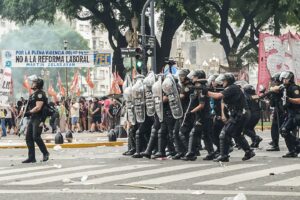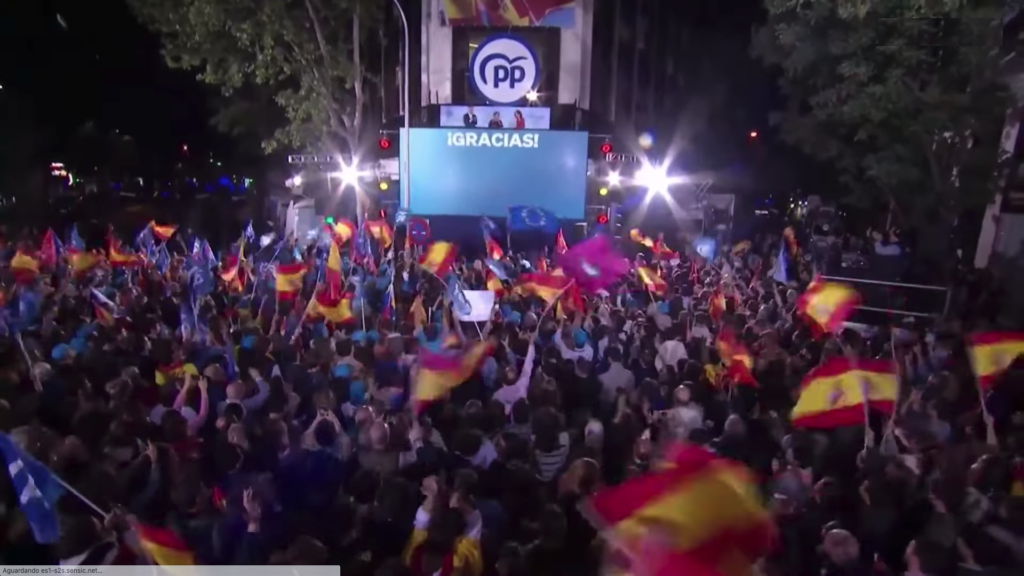
Published 29/05/2023 15:18 | Edited 5/29/2023 3:29 PM
The right wing of the PP (Partido Popular) dealt a major blow to Spanish municipalities and autonomies and took from the PSOE (socialists) at least six of the 10 communities they govern, in addition to the Canary Islands, which means a very clear change in the political map. of Spanish local and autonomous power.
The socialists lost the crown jewel, the Valencian Community, on which they fed on the last hope of sending a message of resistance to the Spanish left.
The PP almost completely devoured the vote of the Citizenship Party, its dissidence to the center, and with this fattening it devastated the big cities, including Seville, which the socialists hoped to save.
The results show that the PP grew from 23% to 31% compared to the 2019 election. The Psoe, on the other hand, fell from 29% to 28% – with about 800 thousand votes less than the 1st place. Right-wing populist Vox dropped from 3.5% to 7%.
Read also: Communists in Spain return to government after 81 years
“Spain has started a new political cycle, my moment will come if the Spaniards want it,” said a euphoric Alberto Núñez Feijóo, leader of the PP.
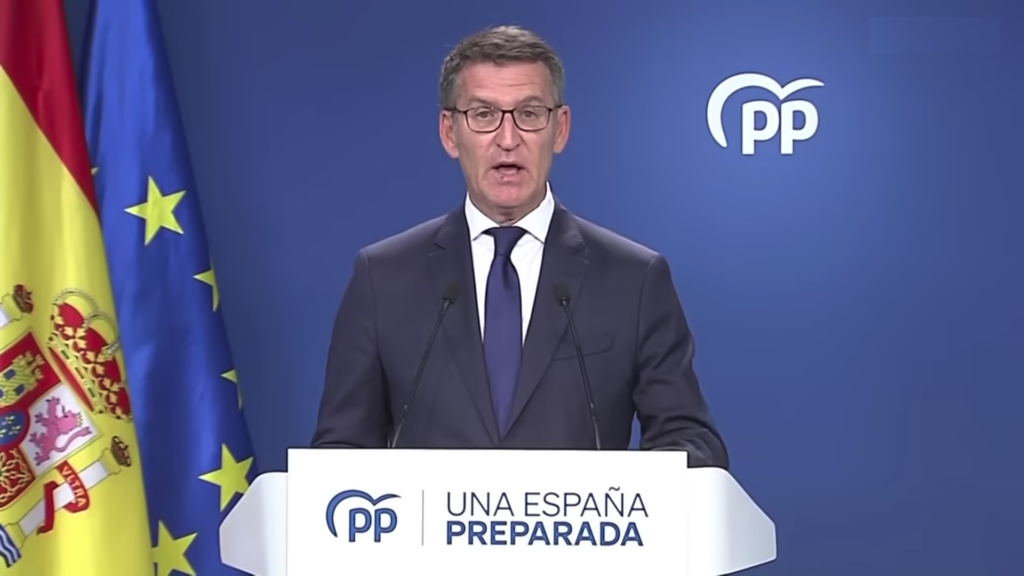
The PP will need Vox to govern, one of the big political issues in the coming days. Vox is a dissidence of the PP, on the extreme right. Feijóo has insisted that he will not let Vox into government, but Santiago Abascal, from Vox, who has been strengthened this election night, will sell his support very dearly and this will be a great battle with his sights set on the general elections, brought forward to 23 of July, where the PP wants to prevent the left from moving against a scenario of Abascal as vice president.
The socialists only resisted more clearly in Asturias and Navarre. Meanwhile, the PP swept Madrid, a square where the left has not stopped losing votes since 2015 and will be governed by an absolute conservative majority.
In the total vote, the popular ones, who in 2019 lost the municipal elections by 1.6 million votes, practically recovered the 1.8 million votes of Cidadania and thanks to that they won again the socialists. They won by more than three points, a clear victory. But it was not a landslide: the PSOE lost 1.2 points, which does not mean a debacle, but this small movement, added to the regrouping of the right, which makes it much more competitive, and the fall of some groups to its left.
Read also: Spain approves minimum income to face hunger and poverty of the population
The coalition that governs Spain since 2020 has not had a single piece of good news all night. Not even in Barcelona, where they closed the electoral campaign, both Pedro Sánchez and Yolanda Díaz could claim victory, because at the last moment Xavier Trias, from Together for Catalonia (center-left), became the most voted and, therefore, with many possibilities of making the city hall and thus ending the stage of Ada Colau, Díaz’s great ally and the last reference of the city halls of the change that arrived in 2015.
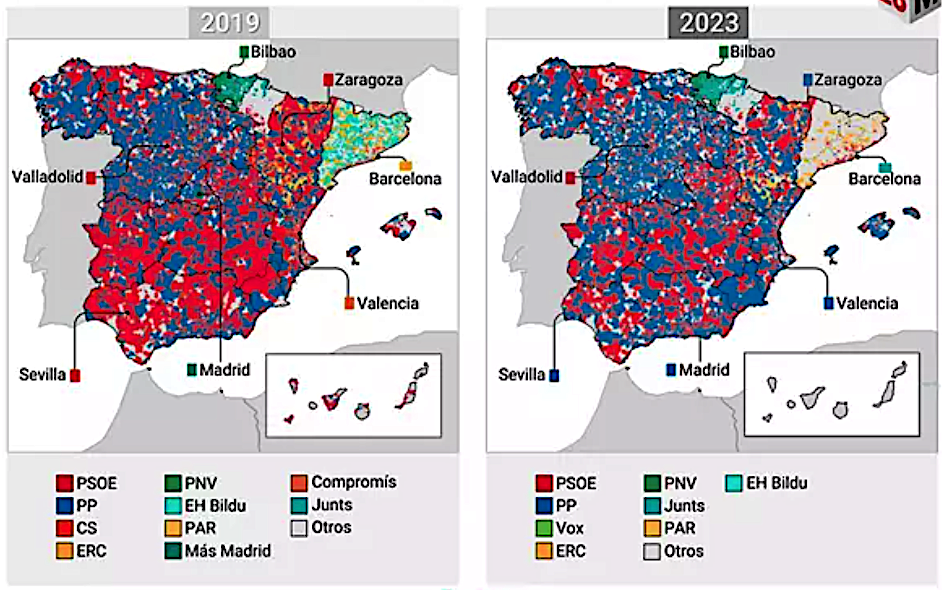
Even so, there is still a possibility that the left will keep Barcelona if it has a pact with the ERC (Republican Left of Catalonia). The result in Catalonia, in any case, as usual, has nothing to do with the rest of Spain, because there the battle was between these three parties and the ERC, while the PP had no role. The ERC got a lower result than expected, something that could also have political consequences at the national level, as it is a key partner for the coalition government.
Another of the highlights of the night, and one of the lessons for the general ones, is what happened to the left of the PSOE. The key to the loss of power for the Valencian Community is that Podemos did not join in. In fact, the PSOE improved its results, but it was useless before the PP pinch and the collapse of Podemos. It has been proven that the division of the left’s vote into three or more options, at a time when the right is regrouping into two, is devastating in an electoral system like the Spanish one. And this reinforces Yolanda Díaz’s idea of organizing a single candidacy around Sumar (the left front), as the only way to face with any possibility the conservative wave that is already spreading to other countries in Europe.
Read also: Spain ceases to be free territory of the radical populist right
Hispanic Patriotism
Although the electoral result was very bad in terms of institutional power, with the loss of the main autonomous communities and large cities, the aggregate vote of the main government partner, the PSOE, remained at 28%, the same percentage it obtained in the general elections in November 2019. What failed to a greater extent is the left of the Government: Unidos Podemos practically disappeared from the regional and municipal political map and everything indicates that its support is reduced to the hardest and most unconditional core.
Political scientist Ignacio Sanchez-Cuenca, from the Charles III University of Madrid, estimates that it took the PSOE four years to come to terms with Podemos and only start governing together in 2018. The two major leftist parties could have governed together after the elections 2015, overthrowing a PP that was extremely unpopular due to austerity policies and corruption scandals.
In December 2018, elections were held in Andalusia and the first sign that something profound was changing in Spain was already visible: the right wing won in Andalusia, historical stronghold of the PSOE since the 1980s, and Vox appeared on the scene with eight deputies. In the two general elections of 2019, Vox entered national politics with force, with 10.3% in April and 15.1% in November.
From then on, Sanchez-Cuenca observes that Spanish politics is divided into two antagonistic blocs and it begins to be noticed, in response to the Catalan crisis of autumn 2017, that a wave of Spanish nationalism is sweeping the country. The feeling of Hispanicity and the defense of the nation, offended by Catalan separatism, become the glue of the right and the core element of a powerful discourse in which the right presents itself as the protector and guardian of Spain against internal threats.
Read also: Minimum wage in Spain rises to 1000 euros from January
That playing field has been extremely unfavorable for the left. Despite an ambitious reform program and positive economic results, perceptions have spread that the government poses a danger to Spain. Measures such as pardons for pro-independence politicians or changes to the Penal Code (sedition) have been gasoline in the hands of the Spanish nationalist right.
PSOE and Sumar ministers respond to changes in the political cycle by investing in management and public policies: reform of pensions, the labor market, reinforcement of the social state, euthanasia law, etc. Unidos Podemos, in turn, sharpened its more ideological profile, on the one hand focusing on a small part of public policy (all related to gender inequality and the new civil rights) and, on the other hand, engaging in leftist battles that were not connect with citizenship (obsessive denunciation by the media and companies, anti-fascist front, etc.): some days it looks like a government party and others an opposition party.
The challenge in the next elections, according to Sanchez-Cuenca, is that the Sumar platform manages to row in the same direction. After all, the PP’s challenge is to secure a majority with Vox, which dreams of banning nationalists. If the PSOE resists and its left Sumar manages to integrate the different forces into a project that arouses enthusiasm and mobilizes lost support in that ideological space, anything can happen.
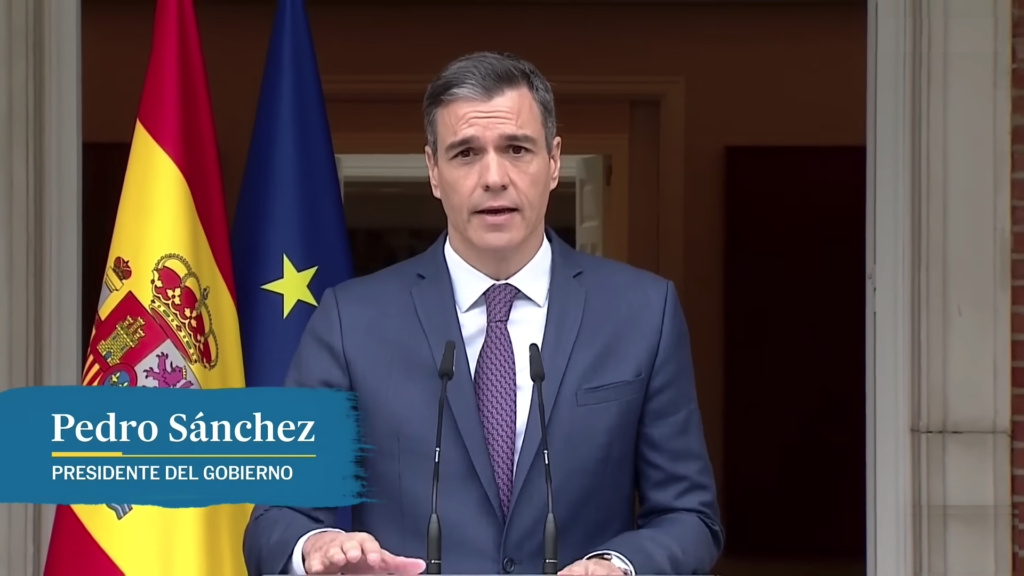
Simulation for the general elections
El País journalist Miguel Jimenez makes an interesting exercise in political fiction by calculating the prospects for the general elections, if they were held today. An exercise that worked at various times, but failed in 2007, when the PP won the municipal ones, but José Luis Zapatero later defeated Mariano Rajoy in 2008.
Read also: Impacts of labor reform in Spain
However, the situation is now different, first because the difference in favor of the PP is greater —more than 750,000 votes— second because the PSOE has much less time to recover until the general elections, and above all because this time the socialists lost much more power that in 2007, when today conservative Andalusia is the great jewel in the crown and the one that well explains part of the PSOE’s difficulties since last year, when the PP obtained its absolute majority.
For him, the translation of data from May 28 to an eventual general election points to a great rise of the PP in Congress, but at the expense of the rest of the right, which would distance him from the absolute majority. United We can sink and PSOE resists.
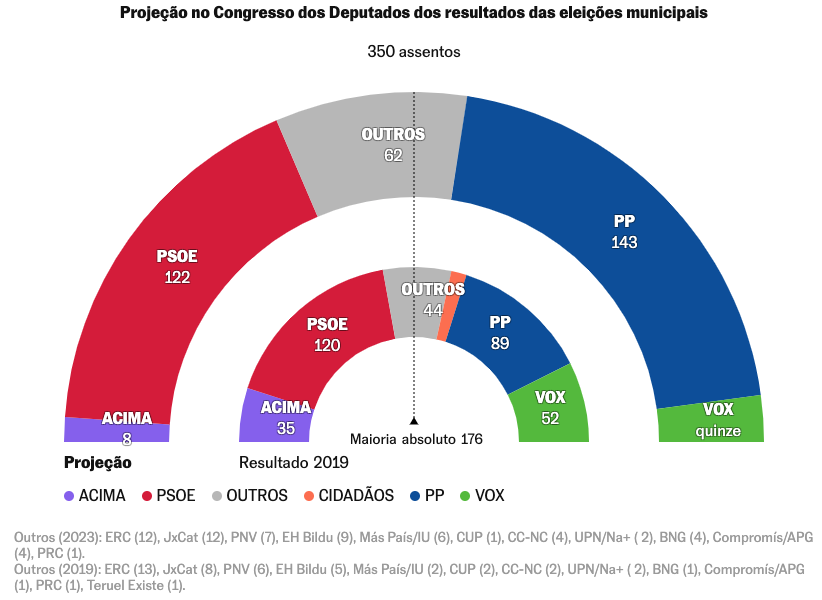
With the result of the municipal elections, the PP would become the party with the most seats, with 143 deputies, 54 more than until then. But it would win almost all of these deputies to the detriment of Vox, which would lose 37, and Cidadania, which would disappear from Congress, losing its 10 seats. The risk of an ungovernable Congress, given the fragmentation and polarization of Spanish politics, is once again on the table.
Although the PSOE lost a lot of territorial power in this Sunday’s elections, a transfer of the votes received to seats in Congress would allow Pedro Sánchez’s party to maintain or even increase its representation. In fact, in percentage terms, the result of the Socialists is very similar to that of the November 2019 general elections. According to calculations, the result of the May 28 municipal elections would give the PSOE 122 seats, two more than it already has. With figures from regional authorities, it would remain the same as now.
Who sinks is its government partner, Unidos Podemos, which collapses in a similar way to Vox.
With information from The country
Source: vermelho.org.br

